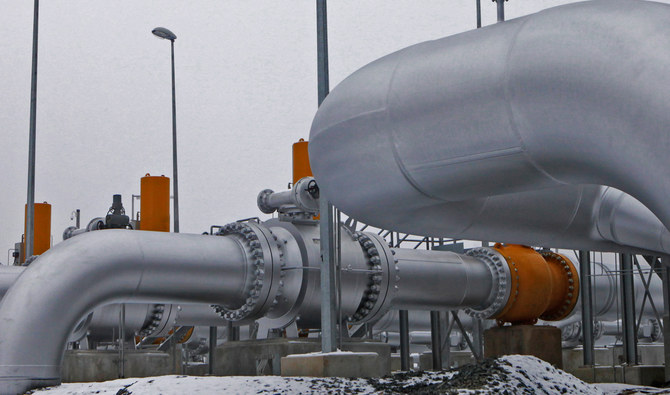KARACHI: Pakistan and Russia are expected to finalize an agreement to start work on the over $2 billion North-South Gas Pipeline Project (NSGPP) during the visit of a Russian delegation to Pakistan next week, Pakistani officials said on Monday.
The agreement will be the latest in a series of energy-related pacts between Pakistan and Russia, former Cold War foes who have grown closer in recent years.
The North-South pipeline to deliver gas from Pakistan’s coastal regions to industrial areas in the north has been held up since 2015 due to a disagreement over fees and United States sanctions against Russian state conglomerate Rostec.
“The discussions with Russians is at a much advanced stage and their delegation is coming to Pakistan and we hope that as per an inter-governmental agreement, an agreement will materialize,” Sajid Mehmood Qazi, the spokesman of Pakistan’s Ministry of Energy, told Arab News on Monday.
The Russian technical delegation will be in Pakistan from November 16-18 and hold discussions with Pakistan authorities on the pipeline project, officials at Pakistan’s embassy in Moscow confirmed to Arab News via phone.
The cost of the 1,100 kilometer long project was initially estimated at $2 billion, with an annual capacity to transport 12.4 billion cubic feet of gas from Karachi in the north of the country to Lahore in the south.
The energy ministry spokesman declined to share the exact cost of the project, saying the design of the pipeline had changed since it was first conceived.
“It is now not the pipeline which was initially designed, with 42 inches diameter,” Qazi said. “Now it would be 48 or 56 inches and according to the new estimates of its compressor size and technical requirements, its cost could be anything between $2 and $3 billion ... but I can’t say exactly about it at this stage”.
The energy ministry spokesman said the government was eager to “make progress” on the project before the next year.
Indigenous natural gas contributes around 38 percent to Pakistan’s total primary energy supply mix. Pakistan produces around 4 billion cubic feet per day (bcfd) against an unconstrained demand of 6 bcfd and imports gas to meet the deficit, particularly when demand peaks in winters.
The North-South pipeline would be the biggest infrastructure deal with Russia since the early 1970s, when the Soviet Union set up the Pakistan Steel Mills industrial complex at Port Qasim, near Karachi.
Apart from the North-South pipeline project, Pakistani officials also say work is being expedited on the multibillion-dollar Turkmenistan-Afghanistan-Pakistan-India (TAPI) gas pipeline project to import gas from Turkmenistan through Afghanistan and Pakistan up to Pakistan’s border with India.
Turkmenistan’s ambassador to Pakistan, Atadjan Movlamov, said on Sunday the TAPI project, with design capacity of 3.2 billion cubic feet of natural gas per annum (Bcfd), was in the stage of “practical implementation.”























